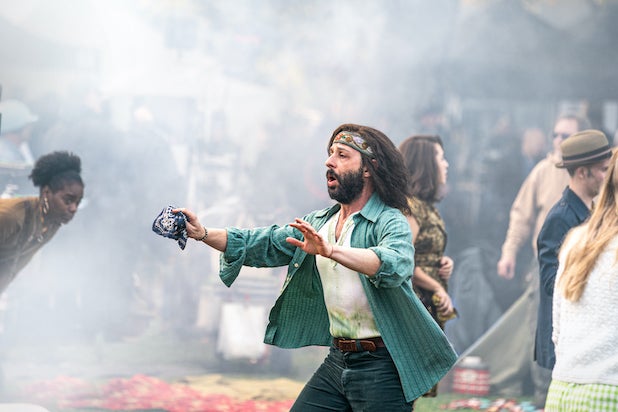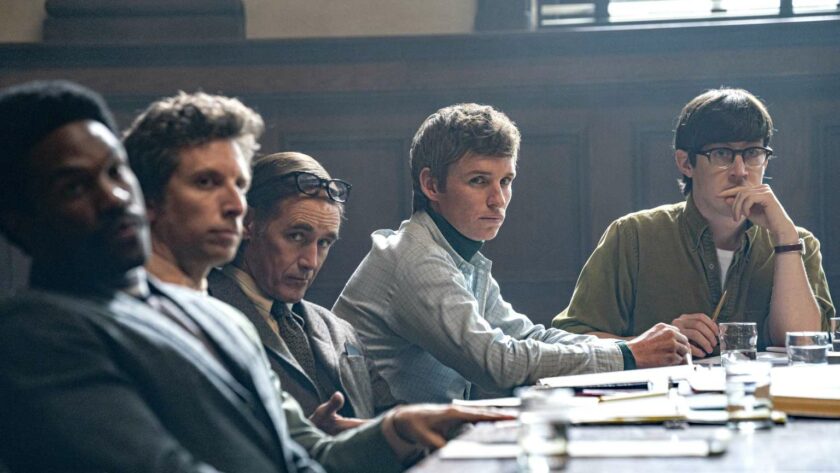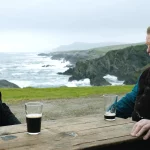Shayeza Walid reflects on the relevance of Aaron Sorkin’s latest drama in the present day.
It is an odd phenomenon when you know a film is most definitely worth the watch, yet for reasons unbeknownst to yourself, you keep putting off that watch. For me, that was the case with The Trial of the Chicago 7. I do admit a degree of laziness in my month-long delay between its release and my watch. However, the film’s convenient availability on Netflix, as well as my lack of desire to watch a realistic drama about riots in the 60s while living through already rather riotous times, sapped any urgency I might’ve felt to watch it. Now, having done so, I must confess to being pleasantly surprised.
Boasting an all-star cast including Eddie Redmayne, Sacha Baron Cohen, Jeremy Strong, and Mark Rylance among others, and written and directed by Aaron Sorkin, The Trial of the Chicago 7 makes for a nuanced, yet oddly pertinent, courtroom drama. Based on the 1969 trial of seven defendants — a disjointed crew of anti-Vietnam War activists and counter culturalists — who were charged with, among other things, inciting riots at the 1968 Democratic National Convention, the film is classically Sorkin.

Punctuated with sharp, fast-paced dialogue and laced with humor, the film is quick to set the scene of a 1960s America whose instability is peculiarly familiar. Beginning with the assassinations of Martin Luther King Jr. and Robert F. Kennedy in the spring of ’68, an atmosphere of chaos and volatility is established from the get go. Although the eight political radicals theoretically counter this mayhem, they really only exacerbate it. This is because, despite being cast as the “extreme left” by the plaintiff (Joseph Gordon-Levitt), in actuality all of those on trial clashed in their outlook on the protests against the war. While Abbie Hoffman (Baron-Cohen) sees the ends to justify the means, seeking cultural revolution and an understanding that the members have been put on trial for who they are rather than what they did, Tom Hayden (Eddie Redmayne) expresses the opposite sentiment, hoping for that a peaceful demonstration will stop the war.
With the majority of the film taking place in the courtroom, a biased setting emerges. The judge (Frank Langella), a racist, barely law-abiding individual, and a jury altered to the prosecution’s advantage, make it clear that a fair trial will be nigh on impossible. It is here that the various institutional discrepancies and pitfalls of the American justice system are put on full display. From the wrongful accusation of Black Panther co-founder Bobby Seale (Yahya Abdul-Mateen III) — the “eighth” man on trial, who had no legal representation and was violently beaten and gagged as a result of a slight misdemeanour in court — to the refusal of the judge to let Ramsey Clark (Michael Keaton), Attorney General during the riots, to testify of his decision to decline to initiate prosecutions after the riots because of evidence that the Chicago Police Department instigated them, light is shed on a deeply polarised, racist, and conflicted America.
Sorkin is a master of big speeches and sitcom beats, of walk-and-talk dialectics, of earnest mansplaining and liberal wishful thinking. So although he draws some dialogue from court transcripts, he also exercises the historical dramatist’s prerogative to embellish, streamline, and invent. What ends up on screen is an enthralling account of a trial that captured the conflict that defined its era, but in a way that at times feels cartoonish and unrealistic. Despite chokingly emotional moments — the constant overlooking of Seale’s voice in court, the abrupt murder of one of the Black Panther members, the unjustified assault of a girl during the riot in Bryant Park, as well as the constant reminder of the death toll in Vietnam — the film’s trajectory plays out in Sorkin’s usual abstract idealism. Therefore, unlike how the film shows it to be, the truth is that ‘true-blue’ ideology is never enough to overcome intrinsically prejudiced institutions of power. Mere eloquent wordy rebellion quite simply isn’t enough for an effective revolution.

The Trial of the Chicago 7 is far from perfect, but it is not easily forgotten. Although, unfortunately or not for Sorkin, a great deal of that inforgetability is due to the film’s glaring contemporary political relevance. With lines such as “The police don’t start riots” and the creation of stark awareness for us as watchers that despite the insistance “There are civil trials, and there are criminal trials… no such thing as a political trial”, this trial indeed is political. The current state of America’s democracy is lucidly echoed.
Ultimately, Sorkin’s film reminds us of the way in which so much yet so little has truly changed in the fifty years since the trial. Although Bobby Seale was released on the grounds of mistrial, and the seven defendants served only five years instead of the original ten, true justice was never served. Abbie Hoffman’s compelling words linger in our ears as the perfect declaration of our present convictions: “I think the institutions of our democracy are wonderful things that right now are populated by terrible people.”




